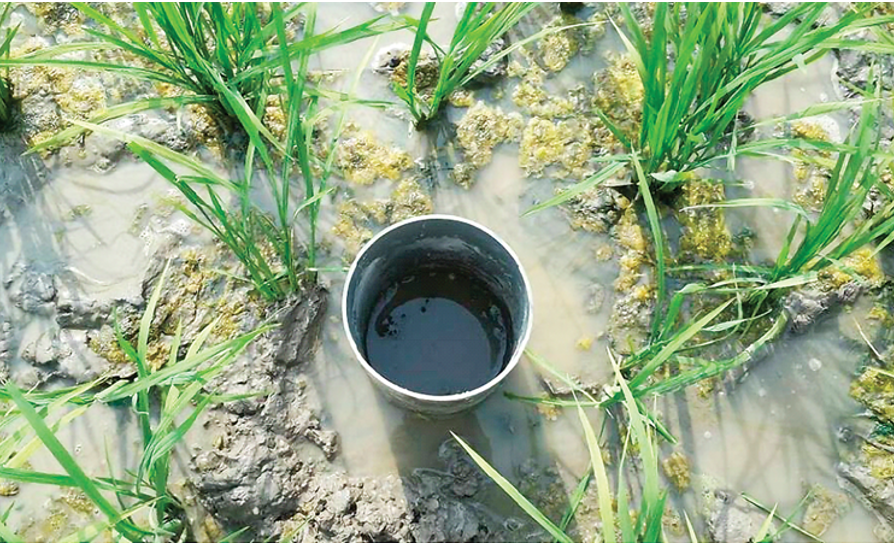On April 1, 2025, Green Carbon officially registered the "AWD rice cultivation project in An Giang Province" under methodology VM0051 "Improved agricultural land management in rice production systems, v1.0" of the Verified Carbon Standard (VCS), effective from February 27, 2025.
The project covers a cultivation area of 116,000 hectares and implements the Alternate Wetting and Drying (AWD) irrigation technique strictly following technical standards. It includes a robust greenhouse gas (GHG) monitoring and measurement system to ensure transparency and eligibility for carbon credit issuance.
The project aims to reduce average annual emissions by 590,682 tonnes of CO₂e, with total emission reductions in the first crediting period (April 1, 2025 – March 31, 2032) expected to exceed 24 million tonnes of CO₂e. This success not only contributes to GHG mitigation but also unlocks opportunities for carbon credit commercialization, boosting farmers' incomes and providing financial resources for sustainable agricultural development.
 The AWD rice cultivation project in An Giang Province does not reduce the amount of soil organic carbon, involve straw removal, decrease the use of manure, or switch to crop varieties with smaller root systems than those used in the previous period.
The AWD rice cultivation project in An Giang Province does not reduce the amount of soil organic carbon, involve straw removal, decrease the use of manure, or switch to crop varieties with smaller root systems than those used in the previous period.The project's core activity is the implementation of AWD, a method that significantly reduces methane emissions from anaerobic soil processes in rice paddies. This irrigation approach decreases water usage in fields equipped with regulated water control systems without altering the cropping cycle or affecting soil carbon levels.
AWD has demonstrated a 15–35% reduction in water usage, well above the minimum 5% requirement, while maintaining or slightly improving rice yields. This showcases the method's feasibility, especially in delta regions where water is abundant but increasingly threatened by climate change. Studies show that AWD can reduce methane emissions by up to 47% compared to traditional practices.
All rice fields under the project are irrigated lowland rice systems, excluding upland rice, rainfed rice, or deepwater rice systems, which fall outside the project's control scope. The model is independent of rainfall patterns and not constrained by uncontrollable water flows.
The project does not intervene in off-season management practices. Activities such as soil tilling, fertilization, crop rotation, or livestock raising remain unchanged from historical patterns. The primary focus is on the rice cultivation phase. The project also excludes post-harvest straw burning or modifications to pre-season water management.
It complies with current legislation, has not altered any natural ecosystems within 10 years before its launch, and avoids adverse off-season impacts. Baseline scenario analysis and additionality assessment were conducted using tool VT0001, following a stepwise structure to ensure consistency and project integrity.